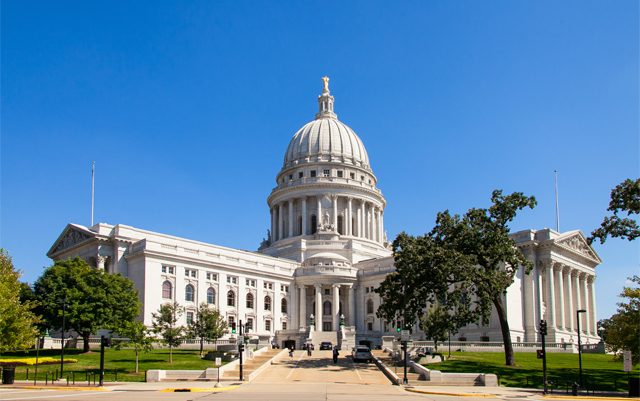While four states got the opportunity to legalize cannabis through ballot initiatives in this week’s election, Wisconsin voters at least got to show state lawmakers that if it were up to them, cannabis would be legal. Advisory referendums were placed on ballots in 16 counties asking voters whether cannabis should be legal for medicinal or recreational purposes – and overwhelmingly, the answer to both was yes.
“I’m delighted that three-fourths of Brown County voters sent a message that that we are in favor of legalizing medical marijuana, and want them to move forward to change laws so people who are sick or suffering can use marijuana as medicine,” said Laura Kiefert, a resident of Howard, Brown County, who a long-time chronic pain sufferer.
As far as the medical marijuana referendums, which were considered in 11 counties, the results were highly favored with a margin anywhere from three-to-one to eight-to-one, with almost everyone in support of making medical cannabis legal. Currently, the state allows low-THC cannabidiol products with a physician’s recommendation – but limits treatment only to seizure disorders.
There were only four counties (Dane, Milwaukee, La Crosse and Rock) that were asked to consider legalizing recreational cannabis, but each of them voted in favor of legalization. With approval rates of three-to-one, 55 percent in one county and 70 percent in another, it is clear that voters are not only ready to see medical marijuana available to those who need it – but also to see prohibition as a whole come to an end.
“I look forward to the state taking that information and having the courage to move forward on decriminalizing and legalizing marijuana,” Milwaukee County Supervisor John Weishan Jr. said.
These results are right in line with the recent 2018 Marquette Law School Poll of Wisconsin voters, which found 61 percent of respondents believe marijuana should be fully legalized and regulated like alcohol, with only 36 percent opposed. National polls have found similar results, with an overwhelming growth in recent years as states prove again and again that legalization and regulation is the more sensible policy.
The results of these referendums suggest that, at a minimum, state legislators should focus on improving access to medical marijuana by expanding their current program to allow full spectrum cannabis and adding to the list of conditions that qualify. While voters appear in favor of outright legalization about as strongly as they want medical marijuana, chances are that legislators will not move on this as readily as they would an expansion of the medical marijuana program.






